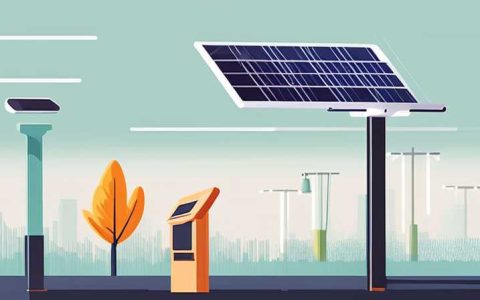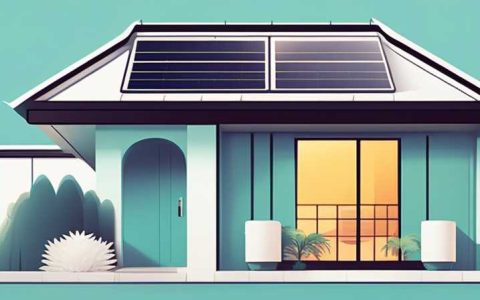<img src=https://nenpower.com/wp-content/uploads/2024/11/image-59814.jpg alt=’How to return solar panels if you don’t want them anymore’ />
1. RETURNING SOLAR PANELS IS DEPENDENT ON SEVERAL KEY FACTORS: 1. Review the terms and conditions of your purchase; 2. Understand state laws regarding returns; 3. Contact the manufacturer or retailer to initiate the return process; 4. Be aware of potential fees or restocking charges.
One primary aspect to elaborate on is the importance of reviewing the purchase agreement. Most solar panel providers stipulate clear return policies within their contracts, which can differ significantly among companies. This entails understanding not just the timeframe for returns, but also the condition in which the panels should be returned. Understanding these details is crucial for a smooth return process.
1. UNDERSTANDING THE INITIAL PURCHASE AGREEMENT
When contemplating the return of solar panels, the initial purchase agreement serves as a fundamental document. Many consumers overlook the fine print that accompanies such purchases, which often contains crucial information regarding return policies. Purchasing solar panels typically constitutes a significant financial investment, making it essential to familiarize oneself with existing terms.
Engagement in the reading of the contract ensures that purchasers are aware of stipulations relating to return policies. Many agreements will outline specific timeframes within which returns are acceptable and conditions that must be met. For example, some manufacturers might allow returns for a limited period, often specified in days or months, which could impact the decision-making process significantly. It’s important to mark these dates to avoid any misunderstandings.
Moreover, stipulations often extend beyond simple timeframes, covering aspects like the condition of the panels upon return. Items that are not in their original packaging or that show signs of wear and tear may be deemed non-returnable. Therefore, maintaining the packaging and ensuring that panels remain in excellent condition can greatly facilitate the return process.
2. FACTORS INFLUENCING RETURN POLICIES
Returning solar panels isn’t just a straightforward process. Various factors influence how simple or complicated returning these items might be. Often, key components include geographical location and state-specific regulations governing such transactions.
Some regions have laws that specifically protect consumers engaging with varying types of contracts. These regulations might stipulate that returns should be accepted within a certain period following purchase, independent of the manufacturer’s policies. Awareness of such laws is critical because they provide an additional layer of protection for consumers in jurisdictions that prioritize consumer rights. Understanding local regulations is essential so that no consumer rights are violated, which may lead to frustration or financial loss.
Additionally, the nature of the installation may play a significant role. If solar panels have been installed, certain companies may impose stricter return policies or even refuse returns altogether. Returning an installed panel generally proves more challenging than returning those still in their original state. This emphasizes the necessity of clarity around the purchase decision; finalizing the sale without installation can simplify potential returns.
3. CONTACTING THE MANUFACTURER OR RETAILER
Once the decision to return has been made, initiating contact with the manufacturer or retailer becomes the next step. This stage is crucial for gathering the necessary information regarding the return procedure, especially if discrepancies exist between policies outlined in the purchase agreement and local laws.
Direct communication with customer service representatives can clarify any misunderstandings about the return process. Representatives may provide detailed instructions, including essential paperwork and shipping requirements. During these discussions, it’s essential to take notes and request confirmation for any information that seems vague or unclear. Documenting interactions adds an extra layer of safety in case future disputes arise.
Moreover, being polite yet firm can significantly influence the outcome of this interaction. When consumers display understanding and courtesy, representatives often feel more inclined to provide assistance, potentially expediting the process. Establishing a rapport with the customer service team can often lead to unexpected benefits, such as extending return periods or waiving specific fees.
4. POTENTIAL RESTOCKING FEES AND OTHER CHARGES
In many cases, returning solar panels may be accompanied by potential fees or charges, often termed restocking fees. Manufacturers and retailers utilize these fees as a way to recuperate losses incurred from returned products. Understanding these costs is imperative to avoid unexpected financial setbacks.
Restocking fees typically range from 10% to 25% of the purchase price, depending on company policies. This means that consumers must weigh the implications of returning products against these potential outlays. Being informed about the fee structure enables consumers to make educated decisions about whether returning panels is a more favorable choice than keeping them.
It is also wise to ask if the company provides options to waive restocking fees under specific circumstances. Certain establishments may consider factors such as the time elapsed from purchase or the reason for return, leading to a more flexible approach. Inquiries regarding available options could greatly lessen the financial impact and provide additional insight into the return process.
5. ALTERNATIVE OPTIONS TO RETURNING PANELS
In some instances, consumers may find that returning solar panels may not be the optimal solution. Exploring alternative options offers avenues for effectively managing the situation while addressing personal preferences or financial concerns.
One such alternative includes reselling the solar panels. The market for used solar energy products has seen growth, as sustainability becomes more popular among consumers. Websites specializing in the resale of various goods offer platforms where sellers may find buyers interested in gently used panels at a reasonable price.
Additionally, repurposing solar panels can prove a viable route. Creative uses can involve alternative energy projects, educational installations, or charitable donations to community organizations. Finding innovative ways to engage with previously owned solar technology may not only contribute positively to the environment but also foster community relationships and support local initiatives.
FAQs
WHAT SHOULD I DO IF MY SOLAR PANELS ARE DAMAGE?
In instances where solar panels become damaged prior to the return process, it’s crucial to contact the manufacturer immediately. The course of action may vary depending on company policies regarding damaged goods. Many companies offer warranty solutions that could potentially cover repairs or replacements under specified circumstances. Additionally, documenting the damage through photographs aids in establishing a timeline and justification for potential claims. If the warranty applies, the manufacturer may suggest additional steps or provide authorizations for repair services.
CAN I RETURN SOLAR PANELS AFTER INSTALLATION?
Returning solar panels that have been installed frequently poses a more challenging obstacle. Most manufacturers maintain strict policies prohibiting returns once installation occurs, as this typically nullifies warranties and modifies the condition of the product. However, it could be beneficial to consult with the manufacturer or retailer about any specific circumstances or the possibility of partial returns, depending on the state of the installed panels.
ARE THERE ENVIRONMENTAL CONCERNS WHEN RETURNING SOLAR PANELS?
Returning solar panels involves considering the environmental implications of such actions. Improper disposal practices can harm the environment, and many manufacturers encourage recycling initiatives designed to maximize sustainability. Before returning panels, consumers should research available recycling programs in their vicinity that may accept unwanted solar products. Engaging in responsible disposal choices helps to mitigate negative ecological footprints associated with solar panel production and waste.
THE FINAL WORD ON RETURNING SOLAR PANELS
Returning solar panels can be a multifaceted endeavor, heavily influenced by individual circumstances surrounding the purchase agreement, local laws, and potential fees. Understanding the complexities is paramount in navigating this process efficiently. Moreover, consideration of alternative options allows for practical solutions that can align closer with personal values. Engaging in thorough research and effective communication with the provider forms the backbone of successfully navigating returns. In doing so, customers can protect their investments while making informed decisions that reflect their energy needs and environmental commitments. This holistic approach positions consumers to make educated choices, minimizing obstacles and providing insight into responsible ownership of solar technology.
Original article by NenPower, If reposted, please credit the source: https://nenpower.com/blog/how-to-return-solar-panels-if-you-dont-want-them-anymore/











